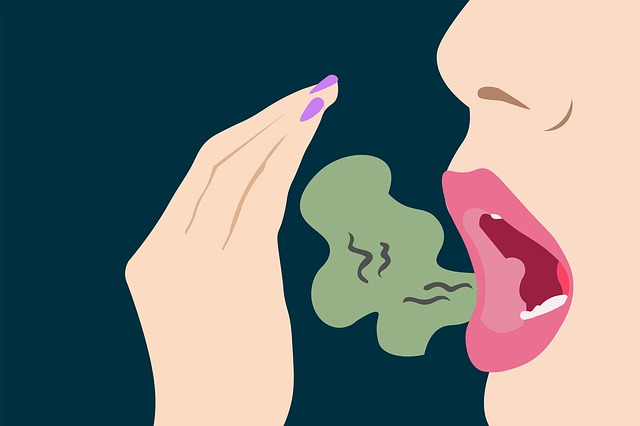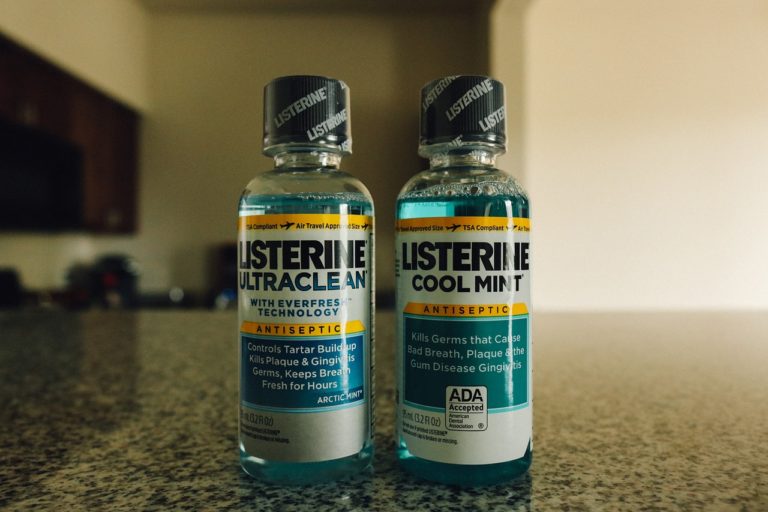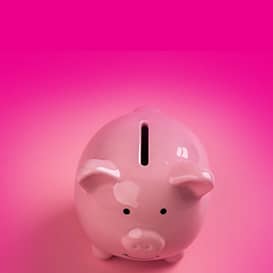
If you have just started to use mouthwash as part of your oral care routine, then you probably have a few questions on the tip of your tongue that need answering, such as how frequently should I be using mouthwash, how much mouthwash should I be using, and what are the main benefits of using mouthwash. We will help answer these for you here.
Firstly, to get the most from your teeth and to keep them well maintained you should be regularly brushing them, at least twice a day – in the morning and in the evening. Three times is usually the desired number that you will see plastered around but sometimes it’s not that easy when you are working 9-5 every day. To replace this third session, maybe think about flossing instead if you are at work.
Most people tend to think it’s just a way of rinsing your mouth clean, and giving you the ultimate in fresh breath. However, mouthwash has other qualities which include killing bacteria in hard-to-reach places in your mouth such as between the teeth, under the gums, and at the back of the mouth. Killing bacteria in these places can often help you avoid minor or major issues from cropping up such as toothaches, or diseases.
The history of mouthwash goes as far back as 2700 BC when saltwater rinses were used in China. Since then, many things have changed including the ingredients of the mouthwash. Modern mouthwash appeared in the second half of the 19th century and became popularised in the early decades of the 20th century as a cure for chronic bad breath.

Generally, the cap that you take off the mouthwash bottle (a popular brand like Listerine for example) will provide you with the correct amount of space to fill and use. 20 – 25ml is the kind of range you want to look for. To make it easy, just pour it into the cap and then pour the mouthwash into your mouth.
Using mouthwash should always come after brushing your teeth and not before! However, NHS recommends finding a different time to use mouthwash, such as after lunch, when you don’t brush your teeth.
Once in your mouth keep it in there for around 30 seconds, making sure that you distribute the fluid around the inside of your mouth by swishing it under your tongue, around your gums, and in all those places we mentioned above. You can even gargle the mouthwash for a few seconds in order to clean the back of your mouth.
Other Considerations for Mouthwash
Mouthwash is designed to be spat out once you have cleaned your mouth, it is not designed to be swallowed. The ingredients in the majority of mouthwash products can be toxic and hazardous if swallowed in large amounts.
If you are in any doubt about how much you have swallowed then it’s best to seek help. Obviously, if you have accidentally swallowed a small amount that won’t cause any serious issues, but try and avoid intaking mouthwash to prevent any serious issues from occurring.

Following on from swallowing mouthwash, one of the other popular questions we get asked is whether kids can safely use mouthwash.
The general rule of thumb is that children shouldn’t need mouthwash, and if for whatever reason they do need to incorporate it into their oral hygiene routine then they need to be over the age of 12.
Even then, it is best to consult a dentist as it could be simply that you need to monitor their brushing habits to see if they are cleaning their teeth properly.
Too frequent use of mouthwash can bring a few side effects:
Removing your healthy bacteria
Mouthwash gets rid of not only bad bacteria causing cavities but good ones protecting teeth and gums. Mouthwash, no matter if it’s alcohol-based or not, harms a healthy oral microbiome which is so important for our digestive system. The good news is that it quickly recovers. So, if you use harsh mouthwash, make sure you don’t do it often and replace it with milder formulas.
Teeth staining
According to a review in 2019, mouthwash causes teeth staining due to its having an ingredient called chlorhexidine (CHX). Fortunately, staining is temporary and mostly happens when mouthwashes with bright dyes are used.
Canker sores
Canker sores in the mouth can appear from an ingredient called sodium lauryl sulfate (SLS). Unfortunately, many famous toothpaste and mouthwash manufacturers use it in their products as it helps create a ‘cleansing’ and ‘foaming’ effect in your mouth.
Dry Mouth
If your mouth always feels dry, your mouthwash can also be a cause thereof. Even though it has fluoride recommended for dry mouth symptoms, alcohol can engender a drying sensation. For good oral health, it’s important to produce enough saliva.
If you experience any of these symptoms, you should cut back or discontinue mouthwash use and consult with your dentist.
Back to BlogLorem ipsum dolor sit amet, consectetur adipiscing elit, sed do eiusmod te...


